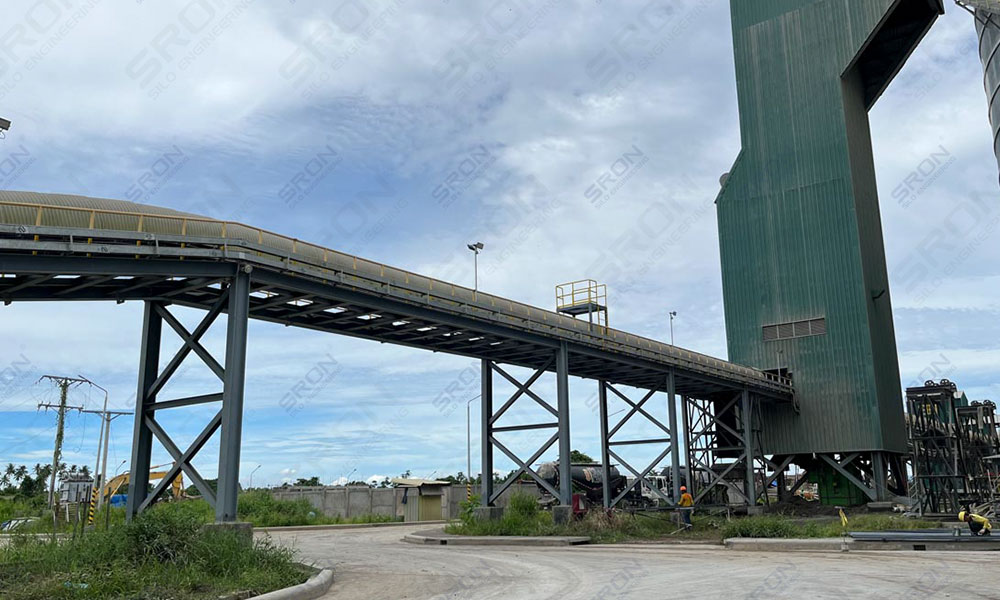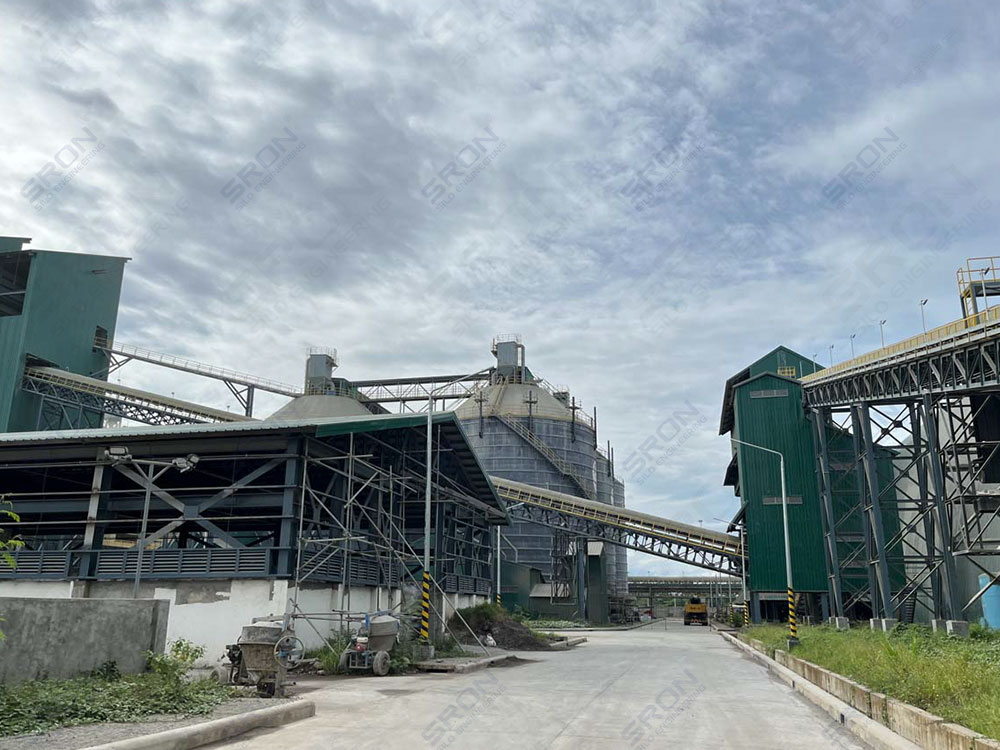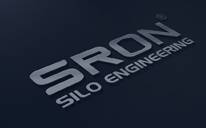Cement Storage and Transportation System in Large Cement Plant
Introduction to Cement Storage and Transportation System
The cement storage and transportation system refers to the transfer, loading, unloading and storage facilities required to transport cement from the cement factory to the construction site. Since cement is a powdery hydraulic material, it needs to meet sealing, waterproof and moisture-proof requirements during transportation and storage. Cement can be stored and transported in bagged or bulk form. In the construction of large and medium-sized projects, due to the large demand for cement, bulk cement is usually used, and cylindrical silos (i.e. cement steel silos) are used to improve the mechanization of cement storage and transportation.
The cement storage and transportation system refers to the transfer, loading, unloading and storage facilities required to transport cement from the cement factory to the construction site. Since cement is a powdery hydraulic material, it needs to meet sealing, waterproof and moisture-proof requirements during transportation and storage. Cement can be stored and transported in bagged or bulk form. In the construction of large and medium-sized projects, due to the large demand for cement, bulk cement is usually used, and cylindrical silos (i.e. cement steel silos) are used to improve the mechanization of cement storage and transportation.
.jpg)
The Cement Storage and Transportation System of Large Cement Plant Usually Includes the Following Links:
Raw Material Storage: Cement plants usually set up raw material storage areas within the plant to store limestone, clay and other raw materials. These raw materials will be sent to the crusher for crushing and mixing to form cement raw meal.
Kiln Firing: The cement raw material becomes clinker after being fired in the kiln, and then enters the cooling equipment for cooling treatment.
Cement Storage: The clinker is crushed into cement and sent to the cement steel silo for storage. Cement steel silos usually adopt a sealed structure to ensure that the cement quality is protected from moisture and contamination.
Conveying System: In order to transport cement from the cement steel silo to the loading or production line, conveying equipment such as belt conveyors and bucket elevators are usually used.
Packaging and Transportation: Cement is usually packaged in bags or bulk form and transported to customer sites or distribution points by means of transportation such as trucks, trains, or ships.
Raw Material Storage: Cement plants usually set up raw material storage areas within the plant to store limestone, clay and other raw materials. These raw materials will be sent to the crusher for crushing and mixing to form cement raw meal.
Kiln Firing: The cement raw material becomes clinker after being fired in the kiln, and then enters the cooling equipment for cooling treatment.
Cement Storage: The clinker is crushed into cement and sent to the cement steel silo for storage. Cement steel silos usually adopt a sealed structure to ensure that the cement quality is protected from moisture and contamination.
Conveying System: In order to transport cement from the cement steel silo to the loading or production line, conveying equipment such as belt conveyors and bucket elevators are usually used.
Packaging and Transportation: Cement is usually packaged in bags or bulk form and transported to customer sites or distribution points by means of transportation such as trucks, trains, or ships.

Commonly Used Cement Conveying Equipment in Large Cement Plants Include:
Belt Conveyor: Belt conveyor is one of the most commonly used equipment in cement conveying system. It can efficiently transport cement from cement steel silos to loading points or production lines. At the same time, the belt conveyor has automatic control capabilities and can be adjusted according to production needs to improve production efficiency.
Bucket Elevator: Bucket elevator is also one of the common cement transportation equipment. It is mainly used for vertical transportation between cement steel silos and storage tanks.
Pneumatic Conveying System: Pneumatic conveying system is an efficient cement transportation method, mainly used for long-distance and large-volume cement transportation. The pneumatic conveying system can set the pipeline length and accurately control the discharge port as needed, which greatly improves the accuracy and speed of cement transportation.
The Advantages of Using Cement Conveying Equipment in Large Cement Plant Include:
Improve Production Efficiency: The use of belt conveyors, bucket elevators and other equipment for cement transportation can not only automatically control the transportation speed, but also greatly improve production efficiency.
Guarantee Product Quality: The cement conveying system has precise control and automatic adjustment features, which can avoid cement quality problems caused by human factors.
Reduce Labor Costs: The traditional cement transportation method requires manual handling and loading, which results in high labor costs. The use of cement conveying equipment can greatly reduce manual participation and reduce labor costs.
Improve Safety: The cement conveying device has automatic control and safety protection functions, which can reduce the safety risks of manual operation.
Belt Conveyor: Belt conveyor is one of the most commonly used equipment in cement conveying system. It can efficiently transport cement from cement steel silos to loading points or production lines. At the same time, the belt conveyor has automatic control capabilities and can be adjusted according to production needs to improve production efficiency.
Bucket Elevator: Bucket elevator is also one of the common cement transportation equipment. It is mainly used for vertical transportation between cement steel silos and storage tanks.
Pneumatic Conveying System: Pneumatic conveying system is an efficient cement transportation method, mainly used for long-distance and large-volume cement transportation. The pneumatic conveying system can set the pipeline length and accurately control the discharge port as needed, which greatly improves the accuracy and speed of cement transportation.
The Advantages of Using Cement Conveying Equipment in Large Cement Plant Include:
Improve Production Efficiency: The use of belt conveyors, bucket elevators and other equipment for cement transportation can not only automatically control the transportation speed, but also greatly improve production efficiency.
Guarantee Product Quality: The cement conveying system has precise control and automatic adjustment features, which can avoid cement quality problems caused by human factors.
Reduce Labor Costs: The traditional cement transportation method requires manual handling and loading, which results in high labor costs. The use of cement conveying equipment can greatly reduce manual participation and reduce labor costs.
Improve Safety: The cement conveying device has automatic control and safety protection functions, which can reduce the safety risks of manual operation.

The Following Matters Need To Be Paid Attention To During Cement Transportation:
1.Prevent cement leakage and dust pollution.
2.Ensure the sealing and stability of conveying equipment.
3.Select the appropriate conveying method to meet production needs and cost considerations.
4.Regularly maintain and inspect conveying equipment to ensure normal operation.
1.Prevent cement leakage and dust pollution.
2.Ensure the sealing and stability of conveying equipment.
3.Select the appropriate conveying method to meet production needs and cost considerations.
4.Regularly maintain and inspect conveying equipment to ensure normal operation.






